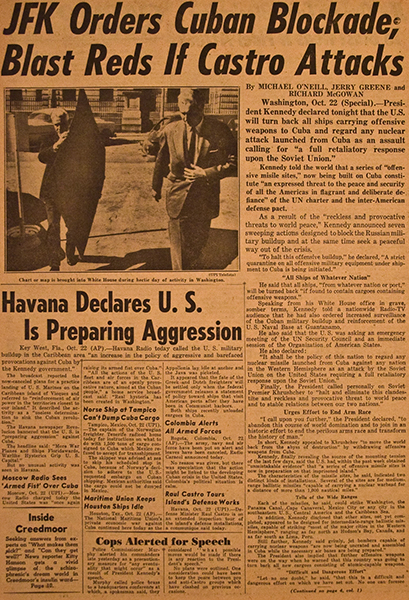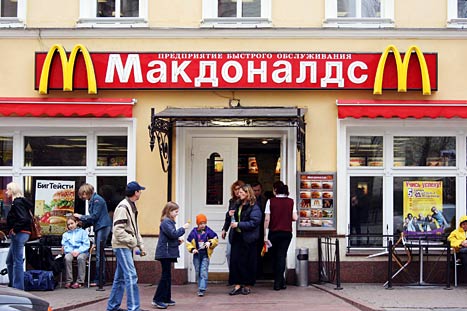Stalinism
Cuba: The legacy of the October 1962 Missile Crisis

By Ike Nahem
A state of affairs worth fighting for: historiography of the Spanish Civil War

By Doug Enaa Greene
The debate about the nature of the former Soviet Union: Who was right?

Moscow 2008.
[For more discussion on the nature of the Soviet Union click HERE. See also the related discussion on Stalinism HERE.]
By Chris Slee
July 30, 2012 – Links International Journal of Socialist Renewal -- The nature of the former Soviet Union was an issue which divided the left for many decades. Now that the Soviet Union no longer exists, differing analyses of its class nature should no longer be a reason for maintaining separate socialist organisations.
Nevertheless, this historical debate has relevance to current politics, since the theories developed to explain the nature of the Soviet Union were subsequently applied to other countries, including Cuba. In particular, the theory of state capitalism, of which British Socialist Workers Party leader Tony Cliff was a leading exponent, is applied to Cuba by many groups today, including Solidarity and Socialist Alternative in Australia.
The class nature of the Chinese state
By Doug Lorimer
[The general line of this report was adopted by the 18th DSP Congress, January 5-10, 1999. This text is taken from The Activist, volume 9, number 1, 1999.]
The purpose of this report is to motivate the adoption by the party of the "Theses on the Class Nature of the People's Republic of China" approved by the National Committee at its October plenum last year.
Since 1993 our party has held the position that the ruling Chinese bureaucracy has been presiding over the restoration of capitalism in China. However, our policy toward China has been ambigious: while taking an oppositional stance in our public press toward the ruling bureaucracy's restorationist course, we have left it unclear as to whether we continued to believe that China is still a bureaucratically ruled socialist state.
Paul Le Blanc: Why Occupy activists should read the greats of revolutionary socialism

[Read more from Links International Journal of Socialist Renewal on Lenin,
Lenin: 'democratic, socialist and revolutionary'
March 1, 2012 – Links International Journal of Socialist Renewal – Fifty key figures on the left including Ian Angus,
The collapse of 'communism' in the USSR: Its causes and significance
By Doug Lorimer
Doug Lorimer is a member of the National Executive of the DSP. This article is based on a report adopted by the 14th National Conference of the DSP, held in Sydney, January 2-6, 1992.
©Resistance Books 1997; first published 1992, second (revised) edition 1997
Contents
Romania: Mass protests then and now

Protesters shout as a background banner reads "Freedom, Early Elections" during an anti-government rally in Bucharest, January 24, 2012.
By Rupen Savoulian
February 15, 2012 -- Antipodean Athiest, submitted to Links International Journal of Socialist Renewal by the author -- Back in 1989, Romania was gripped by mass protests, led by miners, against the corrupt and authoritarian regime of Nicolae Ceausescu. The protests in Romania were part of the generalised "Velvet Revolution" against the dictatorial, bureaucratised, deformed workers’ states in Eastern Europe.
'Leaps Leaps Leaps': Lenin and politics
By Daniel Bensaid
Rainbow Cuba: the sexual revolution within the revolution

March to celebrate LGBTI rights in Havana, May 2009.
By Rachel Evans
December 23, 2011 (updated January 28, 2012) – Links International Journal of Socialist Renewal -- When I was 16, I went to a Cuba solidarity event in my home town. At the end of inspiring speeches about Cuba’s health record, education standards, and the revolution’s policy of sending doctors and teachers to impoverished countries, a rousing “Cuba si! Yankee no!” chant erupted. It was electric. Much better than the fake feeling, singing and dancing we’d experienced in the church hall on Sunday. I was impressed and resolved to visit the country and see the revolution for myself. Years later and having come out of the closet, I decided my trip to Cuba could help prove or dispel the oft-uttered line of Cuba being homophobic.
This work will help put to bed the lies and distortions propagated by the powerful United States (US) propaganda machine: that the Cuban Revolution is undemocratic, homophobic and tyrannical. My visit to and study of Cuba finds that there is no basis to these claims.
Québec Solidaire: A Québécois approach to building a broad left party

Amir Khadir, currently Québec solidaire's sole member of the Quebec legislature, the National Assembly.
On the meaning of ‘popular front’

The Bolivarian movement led by Hugo Chávez contains bourgeois forces and has been th